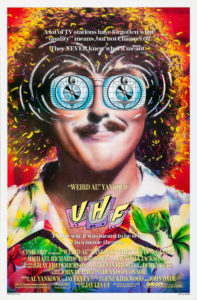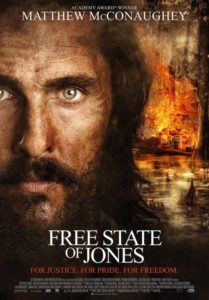Spoiler Warning: This review goes into plot details and specifics of the of the film. If you haven’t seen this film and want to, proceed with caution.
I wrote in my post on 2004’s King Arthur about how Hollywood studios and producers like to boil success down to a formula. In fact, they love it. Filmmaking is generally considered to be creative and artistic, but those things don’t sell tickets. These theoretical businessmen I’m describing are more concerned with having a movie or show they can sell. Nothing sells better than an already established property with a built-in audience, especially one that matches up with trends audiences are into right now.
That’s the theory, at least. In truth, it’s a bit more complicated than that. If a new release seems too blatant in copying the trends set by something else, it could be rejected by the same audience it caters to. The failures of Beastly and the 5th Wave after Twilight and The Hunger Games, respectively, are only a couple of examples. A long time ago, in the year 3 BQ (Before Quarantine), the two most popular things in entertainment were the Marvel Cinematic Universe and Game of Thrones, and everyone wanted to cash in. It felt like every major release was an attempt to start a new franchise, and there were several shows set in medieval times or the dark ages. The Brothers Warner had the DC Extended Universe as their attempt to create a cinematic universe. It, however, was having mixed results, and they looked at other franchise possibilities should it flounder.

The ultimate result was today’s Summer Blockbuster That Wasn’t, King Arthur: Legend of the Sword. Though this film had been in development for years, it contains many of the hallmarks of modern blockbuster films: overbearing CGI, ADD-style editing, fast camera movements that cause whiplash, and an ending that cynically sequel baits rather than end the story. The script went through many different drafts, and eventually Guy Ritchie signed on as director. It was designed to attract multiple demographics. The medieval sword and sorcery setting would get the GOT audience to buy tickets, and the story was structured like a superhero origin.
To make the old seem new again, they start this version of the legend differently, with Arthur as the legitimate heir to King Uther Pendragon (Eric Bana). After using Excalibur to defeat Mordred’s attempt to invade Camelot, Uther is betrayed by his power-hungry brother Vortigern (Jude Law). Before the King and Queen are killed, they manage to get Arthur to safety and he is raised in a brothel in Londinium. As an adult, Arthur (Charlie Hunnam) is a streetwise and skilled fighter who acts as a bouncer for prostitutes. This all changes, however, when he’s taken with many other men his age to see who can pull Excalibur from its stone. When he unexpectedly manages to do it, Arthur learns of his birthright, and must defeat his uncle to save the kingdom.
Legend of the Sword’s biggest problem is one many failed adaptations have: it’s uncertain of its audience. This movie had a $175 million budget, and because of that needed to appeal to as wide an audience as possible. So, it changed and got rewritten. It wants to attract the King Arthur crowd, the GOT crowd, the superhero crowd, and fans of Guy Ritchie. Problem is, the audience for an Arthurian film were bothered by how little it resembles traditional tales. GOT fans just stayed home and watched episodes of that show. Superhero fans weren’t interested. Guy Ritchie’s biggest fans probably aren’t that numerous. The film tries to appeal to everyone, and ended up appealing to no one.
The film starts in over-the-top fashion, with a massive battle on the borders of Camelot. A lot happens in the prologue, with destructive magic turning soldiers to dust, armies clashing on a bridge, and giant elephants on the attack. It ends with Uther riding a horse off a ledge to land on one of the beasts and unleashing Excalibur’s power. The sequence is stylish, fantastical, and easily the most entertaining part. If the rest of the film had the imaginative insanity of its beginning, it would’ve been more enjoyable.

Instead, LotS retreats into the gritty criminal underworld sensibilities Ritchie is known for. Magic comes out only in short spurts, and there’s little sense of wonder when it happens. Vortigern is partnered with a uniquely creepy octopus/witch hybrid, but that’s about it. The movie seems more interested in the low-level criminals of Londinium and setting up that part of the world, so the rules for the mages and supernatural creatures remain poorly defined. An unnamed Mage (Astrid Berges-Frisbey) shows up because Merlin was being saved for a sequel, and the only ability of hers shown is a similar warging ability to Bran in GOT. Otherwise, she mainly just glares mysteriously.
The film rushes through Arthur’s childhood with a montage showing Vortigern’s rise to power and Arthur’s life on the streets. It lasts a couple of minutes at most. On one hand, I admire Ritchie’s ability to convey so much information in so little time. You see how Arthur learned to fight, his physicality (Hunnam fans will enjoy his shirtless shots), and a little of the neighborhood he grew up in. On the other hand, the speed of this montage makes it harder to get a hold on Arthur’s character later on or why he’s worth rooting for, and sets a precedent for the rest of the film feeling like a two-hour montage.
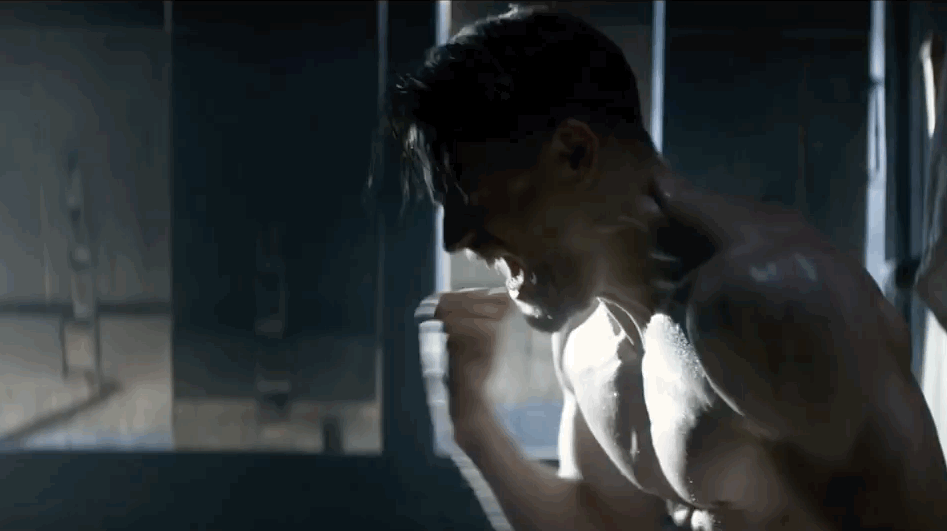
Ritchie’s crime films have an editing style of cutting back to events that have already happened as they’re being described. This can be an effective storytelling technique when used in moderation, and can reveal parts of the narrator’s character. But it’s a technique used ad nauseum here, to the point of incoherence. Throughout the film, scenes will cut back and forth to completely separate locations and characters while seemingly important information is being conveyed. This is the kind of film where a character is shown in an insert shot when his name is spoken. Even in the middle of action sequences, such as the Camelot chase, the film cuts to seemingly random people, angles, and events out of order. Instead of keeping the pace up, it distracts, making it difficult to keep track of where people are and what’s being said. While it’s admirable that WB gave Ritchie as much room to put his directorial thumbprint into this film, he fails to incorporate it properly, resulting in overindulgent style over substance. Brad Jones (better known as the Cinema Snob) said it best in his review when he remarked that it was “edited in a blender.”
Watching LotS, I thought back to King Arthur 2004, and my review of it. I think I may have been a little too hard on that version. While I stand by my criticisms, I think that film had more going for it than it first seemed. It was consistent in tone and style, had a solid idea and basis for a new version of the story, and at the very least, a protagonist who was a proactive leader. He made his own decisions and you could see why people would follow him. I do not get that from this Arthur. Other characters constantly talk about him like he’s destined to become a great king, but what about him shows that kind of potential? There’s talk of his destiny and prophecy, but it’s incredibly vague (This may be personal preference, but I rarely like prophecy plots. I find them a lazy way to justify plot development, and take important choices and actions out of character’s hands).
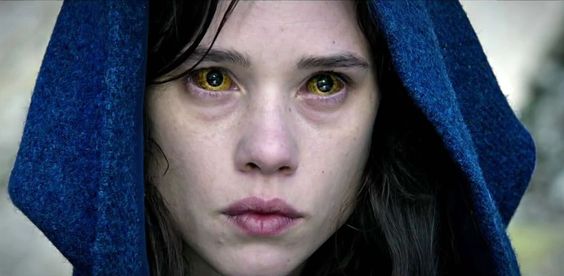
Early on, he’s shown to be protective of the prostitutes he lives among and has a few friends, but that’s basic background information. The scene of all the men being forced to pull Excalibur out of the stone (which is actually Uther’s body, an admittedly clever twist) would have been the perfect time to show his best characteristics. He could patiently wait in line to show he doesn’t believe himself to be above anyone else, and the movie could even introduce an important character or two among the extras. Instead, it does the opposite, as if Ritchie and writer Lionel Wigram were afraid of slowing down for even a moment. Arthur pushes his way through the crowd to get to the front. For extra points, he glares at the one peasant who calls him out, you know, like a bully. From there, Arthur acts like a jerk to the people who rescue him, and arrogantly hits on the Mage.
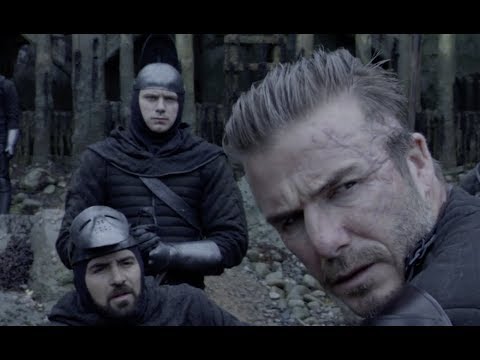
Vortigern gives a brief summation of Arthur, saying his background has made him ambitious. There is no evidence of this. From moment one, Arthur rejects his birthright, willing to disappear from the face of the Earth. When his uncle kills one of the workers, and threatens the others, he refuses to fight after escaping. When he witnesses his origin in the ill-defined Darklands, he only agrees to fight out of revenge. Later still, he throws the sword away and tries to abandon the fight again, until the Lady of the Lake shows him what will happen if he gives up. Our hero has to be shown the future to be forced into his role, and the rebellion was already happening without him.
So what would make him a good king? Is it his bloodline? Is it just that his uncle is that bad? Is it the sword? He’s the one who can wield it the best, but it’s not because of his character, but his name. Merlin forged it for his family in a flashback, and he basically becomes a superhero when he uses it. The only use it seems to have, however, is combat. Effective as it is, Arthur spends most of the film rejecting it, and he becomes a hero only when he attacks with it. The answer to the question seems to be that Excalibur is the real hero, and Arthur deserves to be king because he can kill a lot of people with it. The title and the final shot seem to agree: the man isn’t important, the weapon is.
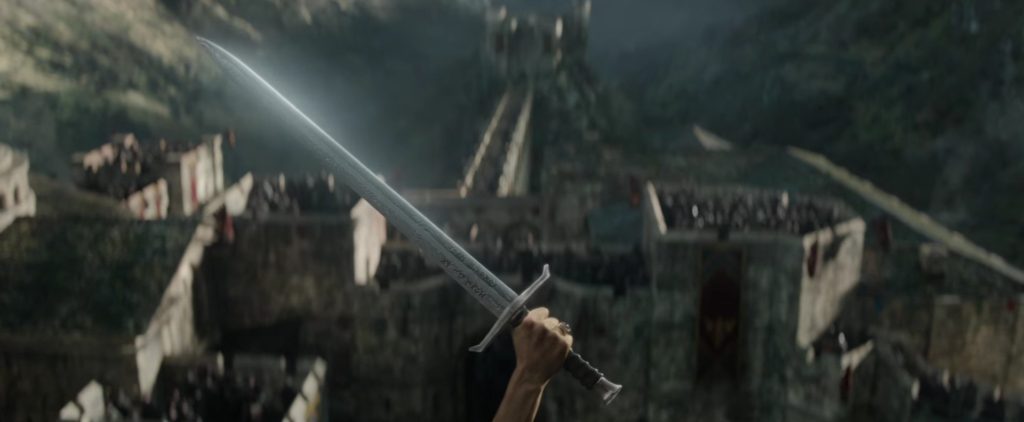
The other characters aren’t much better. Dimension is attempted with Vortigern when he cries over having to kill a loved one for magical abilities (twice), but it fails because he’s not a well-intentioned extremist. He doesn’t have any higher purpose he believes in, he’s just an evil, power-hungry madman. He’s also very, very stupid. When he fails to kill Arthur at the beginning, the smart thing to do would be to find him so he can’t become a threat later. Instead, he forgets about him until he’s an adult. Worse, Arthur only learns about his origins, along with the rest of the world, because Vortigern made him pull Excalibur. When he has Arthur imprisoned shortly after, this would’ve been the perfect time to quietly kill him and get rid of his problem. Instead, he makes a public show of it, giving Arthur the perfect means of escape. All suspense evaporates because our villain is a moron.
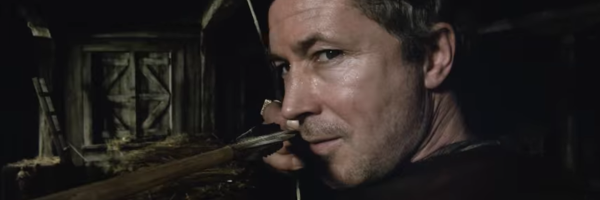
Arthur’s allies include characters with names like Kung Fu George, Back Lack, and Goosefat Bill, in case you forget you’re watching a Guy Ritchie film. Back Lack (Neil Maskell) is given some traits, but only so he can die later and Arthur can blame himself, even though Bill (Aiden Gillen) is the one who he should blame. After all, he’s the one who went ahead with the assassination attempt even though he knew it was a trap. Sir Bedivere comes across as the best leader in the film, but that’s mainly because he’s played by the charismatic Djimon Hounsou. Other characters come and go, and it’s impossible to keep track or care about who’s who.
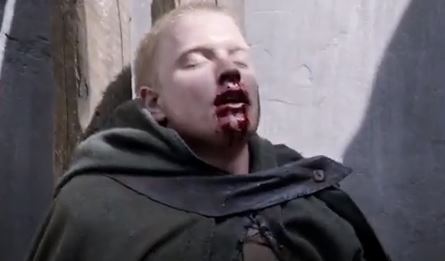
After a long two hours, the film ends in predictable superhero origin fashion: a video game CGI fight and a smug sequel hook. Arthur shows his friends an unfinished round table, and even has to explain what a table is. Important characters of the lore are held back for sequels. A cinematic universe is supposedly born. Another example of a one film idea being padded out for franchise options. Unfortunately for WB, LotS bombed, because you can’t make something a cinematic universe right out of the gate. You have to give audiences a reason to care. There is little reason here.
GRADE: D+
This movie is a mess. Hardly anyone is worth rooting for. The superhero movie doesn’t mix well with the King Arthur story, nor does Guy Ritchie’s style. It doesn’t even feel like he wanted to make a King Arthur movie. The editing is confusing and makes it hard to keep track of time and place. At times it even feels like a fan edit of an entire season of a Netflix series, which may have worked better. I promise I wanted to like this film. I love high-fantasy films, and I don’t think we get enough of them. I have also liked Guy Ritchie’s past films, so I was hoping that this was just overlooked. I even thought that this could be that during the first 15-20 minutes. There are even a few quick glimpses of imagination and design. But, it’s just an example of the worst trends of Hollywood Blockbusters today, a cynical and unnecessary franchise-starter. I can’t imagine why WB thought people would pay for one sequel to this, let alone the originally planned five. This was in development for around six years. Studios and producers would learn well to let some ideas go.



